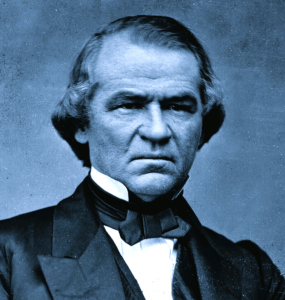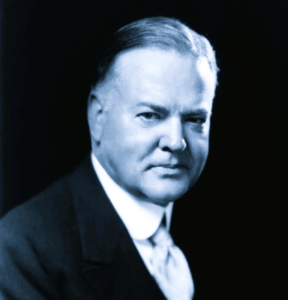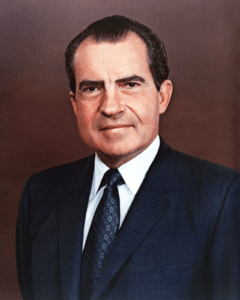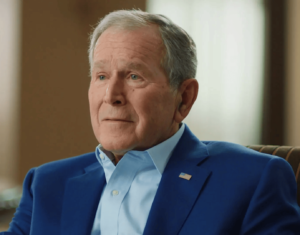Worst Presidents of United States
Introduction
A president’s role could be the most rewarding; however, each decision they make could come to bear significant importance. Sadly, certain U.S. presidents have resorted to policies and choices that were despised by the public and led to the country’s downfall instead. Being in power during crises or managing ethics scandals, these presidents often earned the infamous title of ‘the worst’ in the history of the US. What did these leaders do to be called so? This and many more questions we will explore in this article. What do their presidencies teach us in terms of leadership style—which is acceptable or which is not?
What Defines a “Worst” President?
To understand what makes a president “worst,” we need to look at key criteria historians and the public use to evaluate presidential performance. Often, these criteria include:
- Economic Impact: How effectively did a president manage the economy during their tenure? Did they prevent or worsen economic crises?
- Foreign Policy: Presidents face judgment for the wars they involve the country in, or conflicts they failed to prevent.
- Civil Rights and Domestic Policies: A president’s legacy is often tied to their stance on civil rights, equality, and justice.
- Leadership and Integrity: Presidents’ character, ethical choices, and leadership abilities often set the tone for their reputation.
While some presidents are criticized immediately, others become infamous over time as historical perspectives evolve. Below, we’ll take a closer look at some of America’s most contentious presidents and the legacies they left behind.
1. James Buchanan: The President Who Couldn’t Stop Civil War

James Buchanan’s presidency (1857-1861) is widely regarded as a failure for his inability to prevent the nation from spiraling into Civil War. His lack of action on rising tensions between North and South made his presidency controversial.
- Inaction on Slavery: Buchanan’s refusal to address slavery conflicts ultimately emboldened the South, pushing the country closer to division.
- Failed Leadership: Historians argue Buchanan’s passive approach and ineffective policies exacerbated regional divisions.
- Legacy: Buchanan’s failure to confront the nation’s most pressing issue left a fractured country and a burden that President Abraham Lincoln would have to manage.
Read More: Maxican Health System
2. Andrew Johnson: Mishandling Reconstruction

Andrew Johnson (1865-1869), who replaced Abraham Lincoln, had to take the nation through the tough reconstruction period; unfortunately, he is best known as a stand in the way of progress rather than as a facilitator of such.
- Civil Rights Diarhea: He blocked efforts to safeguard the rights of free Black Americans, which included voting in the 14th Amendment.
- The Congress dilemma: Impeachment caused him embarrassment because he had made offenses that were serious enough for Congress to act. His differences in opinions with Congress formed a pattern in Johnson’s tenure that usually ended with conflict.
- Reconstruction Dilettante: Johnson’s policies order changed socio-economic reconstruction plans in the South and caused social disadvantages to generations after this reconstruction.
Read More: Is Elon Musk a Russian Agent
3. Warren G. Harding: Scandals and Corruption

Warren G. Harding’s presidency (1921-1923) is one of the most notorious for corruption. Though he enjoyed public popularity, his administration was riddled with scandals.
- The Teapot Dome Scandal: High-ranking officials in Harding’s administration accepted bribes in exchange for oil reserves, one of the largest scandals in U.S. history.
- Personal Leadership Failures: Harding was criticized for poor choices in appointing corrupt friends to key positions.
- Public Trust Eroded: The scandals in Harding’s administration had a lasting impact on public trust in the government.
Read More: Is the Media Finally Taking Trump’s Rally Rhetoric Seriously?
4. Herbert Hoover: Failing to Address the Great Depression

Herbert Hoover (1929-1933) took office just before the Great Depression, but his limited response to the economic crisis has left a lasting negative impact on his reputation.
- Economic Crisis Management: Hoover’s policy of “volunteerism” and limited government intervention was insufficient as the Great Depression worsened.
- Public Backlash: “Hoovervilles,” or shantytowns of homeless people, symbolized the public’s resentment toward his administration.
- Legacy: Hoover is often remembered for not taking the drastic steps needed to address the severe economic downturn.
Want to Read More: What is Apple Intelligence?
5. Richard Nixon: The Watergate Scandal and Resignation

Richard Nixon (1969-1974) achieved many positive reforms, but his presidency ended in disgrace due to the Watergate scandal.
- The Watergate Scandal: Nixon’s involvement in the cover-up of a break-in at the Democratic National Committee office led to his resignation.
- Erosion of Trust in Leadership: The scandal led to widespread disillusionment with the government.
- Impact on Presidential Integrity: Nixon’s resignation marked the first time a U.S. president stepped down from office, changing how the public viewed the ethics of high office.
6. George W. Bush: Controversial Wars and Economic Crisis

George W. Bush (2001-2009) faced major events during his presidency, including the September 11 attacks. However, his decision to go to war and handle domestic economic crises remain controversial.
- The Iraq War: Initiated on intelligence about weapons of mass destruction that was later disproved, the Iraq War remains one of Bush’s most debated actions.
- 2008 Financial Crisis: Bush’s policies leading up to the housing market collapse contributed to the economic crisis that ended his presidency.
- Long-Term Effects: The Iraq War and economic downturn left impacts on foreign relations and public sentiment that are still felt today.
The Impact of the “Worst” Presidencies on American Politics Today
Presidents may come and go, but their decisions have long-lasting effects on the nation. Some of the worst presidencies have actually led to essential reforms and shifts in policy. Here are some key takeaways:
- Increased Scrutiny on Presidential Powers: Scandals like Watergate have led to greater oversight of presidential powers and ethics in office.
- Civil Rights Advancements: Failures in advancing civil rights under presidents like Andrew Johnson set the stage for the Civil Rights Movement later in the century.
- Foreign Policy Lessons: Controversial wars, like those initiated by George W. Bush, highlight the importance of transparency and careful consideration before committing to foreign conflict.
While each of these presidencies is marked by significant issues, they offer powerful lessons on leadership, accountability, and the responsibilities tied to the highest office.
Conclusion
Looking back, it’s clear that these presidents made critical errors that profoundly impacted the United States. Their decisions remind us of the importance of strong, ethical leadership, especially in times of national crisis. As history unfolds, their legacies serve as cautionary tales for future leaders, reminding us of the pitfalls of power and the weight of presidential responsibility. Through their stories, we can learn what it truly means to lead—and how much there is to lose when leadership goes wrong.
